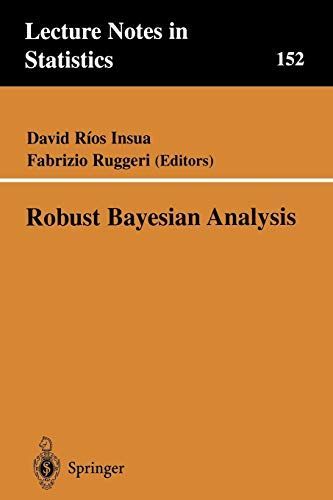
Robust Bayesian Analysis
Robust Bayesian analysis aims at overcoming the traditional objection to Bayesian analysis of its dependence on subjective inputs, mainly the prior and the loss. Its purpose is the determination of the impact of the inputs to a Bayesian analysis (the prior, the loss and the model) on its output when the inputs range in certain classes. If the impact is considerable, there is sensitivity and we should attempt to further refine the information the incumbent classes available, perhaps through additional constraints on and/ or obtaining additional data; if the impact is not important, robustness holds and no further analysis and refinement would be required. Robust Bayesian analysis has been widely accepted by Bayesian statisticians; for a while it was even a main research topic in the field. However, to a great extent, their impact is yet to be seen in applied settings. This volume, therefore, presents an overview of the current state of robust Bayesian methods and their applications and identifies topics of further in terest in the area. The papers in the volume are divided into nine parts covering the main aspects of the field. The first one provides an overview of Bayesian robustness at a non-technical level. The paper in Part II con cerns foundational aspects and describes decision-theoretical axiomatisa tions leading to the robust Bayesian paradigm, motivating reasons for which robust analysis is practically unavoidable within Bayesian analysis.